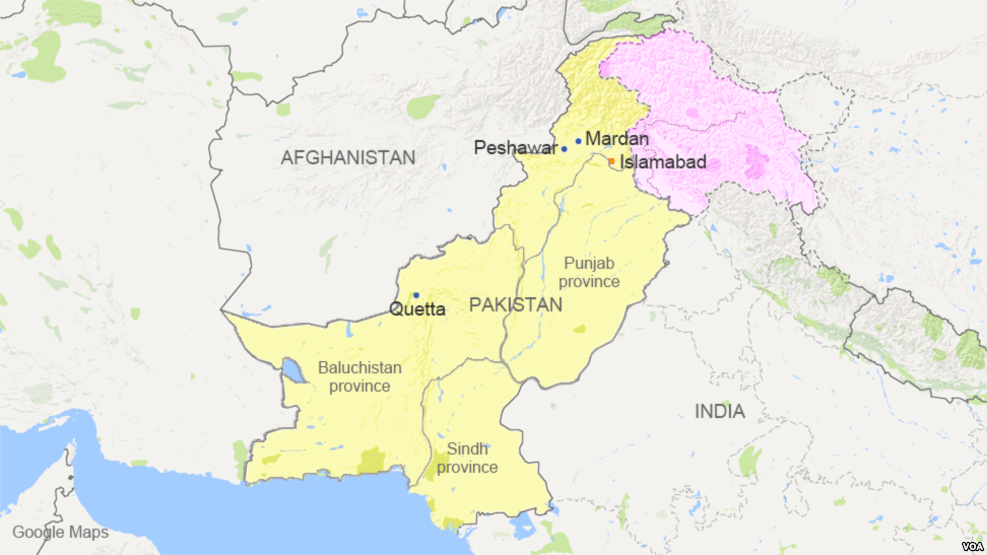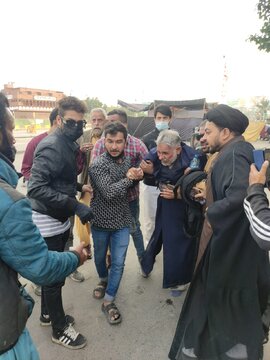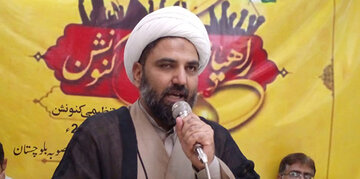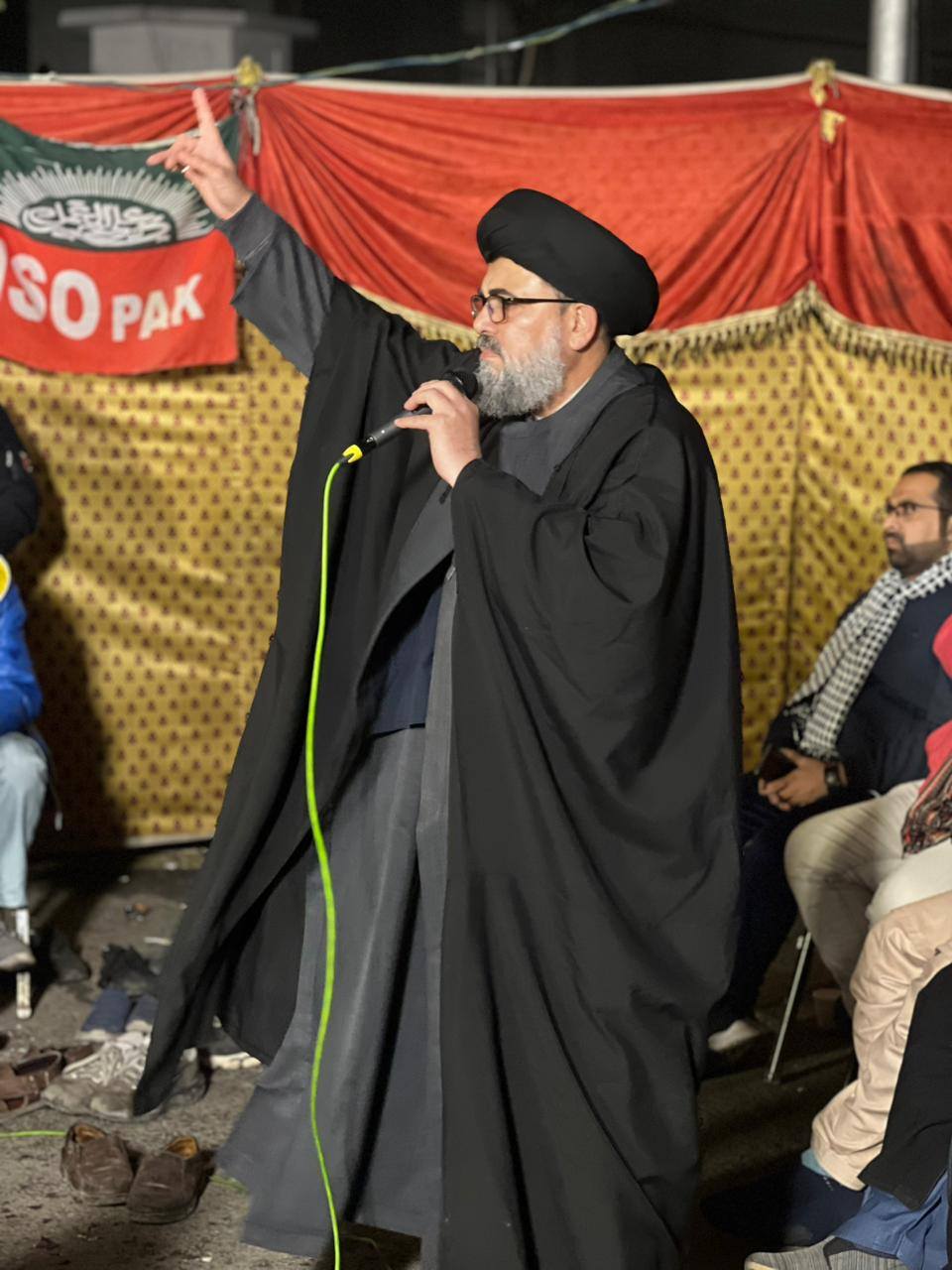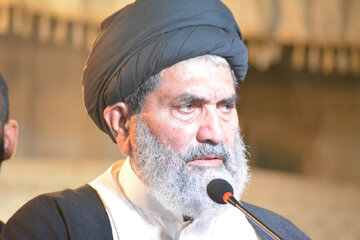(AhlulBayt News Agency) - Pakistan continues to be racked by terror and violence despite efforts by the Pakistan military that have marginalized militant groups in some key areas.
"Though the Pakistani army did an excellent job of degrading the capacities of the Pakistani Taliban and other powerful anti-state groups, you have still got terror groups ready to mobilize," said Michael Kugelman, a senior researcher at the Wilson Center, a global policy and research forum in Washington.
In two attacks this week, on the first day of Eid al-Adha, one person was killed and over a dozen injured. In the first attack, a suicide bomber targeted a Shi’ite mosque in Sindh province, and then a bomb targeted police vehicle in Quetta, the capital of Baluchistan province.
A suicide bombing in Quetta last month killed over 75 people and injured more than 80. Another suicide attack on a court complex earlier this month killed at least 14 people and wounded about 50 others in Mardan. The Mardan bombing occurred hours after four suicide bombers assaulted a Christian neighborhood in Peshawar.
The attacks came after the Pakistan army announced that a two-year operation against the Pakistani Taliban in the semi-autonomous tribal regions had cleared militant groups from the area.
With “terrorists being chased across the country, we are determined not to allow them to return and reverse our gains,” Pakistani army spokesman Asim Bajwa recently said on his official Twitter account.
Other threats
But experts say that while the operation has limited attacks by the Pakistani Taliban, other militant groups are capable of striking in the country.
“More importantly, and more dangerously as we take a long view of Pakistan's terrorism trajectory, these potent groups in Pakistan still benefit from extremist ideologies, which, despite pledges by the Pakistani government, have not been weakened in a big way,” analyst Kugelman said.
He added that Pakistan was “rife with the extremist ideologies that fuel terror.”
Some Pakistani media and human rights groups have been critical of the Pakistani army for what they call a lack of transparency in its counterterror operations. The isolated western tribal regions that have been a stronghold for militant groups largely remain inaccessible for outsiders. That has left the army's public relations office as the main source of news about the military's operations to clear the region of militant groups.
The army says it killed over 3,500 militants, including many commanders, during the operation.
“Restrictions on access to these conflict zones imposed by the government limited the information available to civil society and nongovernmental actors about possible abuses in these areas,” the U.S. State Department said in its annual worldwide human rights report.
The lack of transparency masks how deeply militancy has become part of Pakistan’s social fabric, analysts said.
“We need reforms in this country,” said Pakistan-based defense analyst Saad Mohammad Khan, a retired military leader. “If we want to eliminate the extremist narrative, we must introduce reforms in our education system, madrassas [religious seminaries] and foreign policy — which support extremism.”
Punjab province
While the Pakistani government has attempted with mixed results to contain militant groups in northern and western parts of the country, Punjab, the most populous province, remains a harbinger for militant groups. The Pakistan parliament has been embroiled in a debate about why the military does not do more in Punjab to curb militancy.
The military says it consistently tries to uproot militants. Last weekend, Army troops conducted an anti-terror operation between South Punjab and Baluchistan. The military said eight militants were killed.
"Terrorists of all organizations, including Haqqanis, including Afghan Taliban, have been killed and some apprehended ... so if you say that you know actions have not been taken or [are] not being taken, that is wrong,” army spokesman Bajwa said recently.
But the U.S. and Pakistan’s neighbors are demanding that Pakistan do more to curb militancy as Taliban and other militant factions infiltrate Afghanistan from Pakistan’s porous border
Afghanistan has repeatedly accused Pakistan of harboring and supporting Afghan Taliban and the Haqqani terrorist network. Pakistan has said it has “some influence” over the group but denies providing sanctuaries to them.
“Unless Afghanistan has peace, the region cannot be peaceful,” former Pakistani military leader Khan said.
/129

